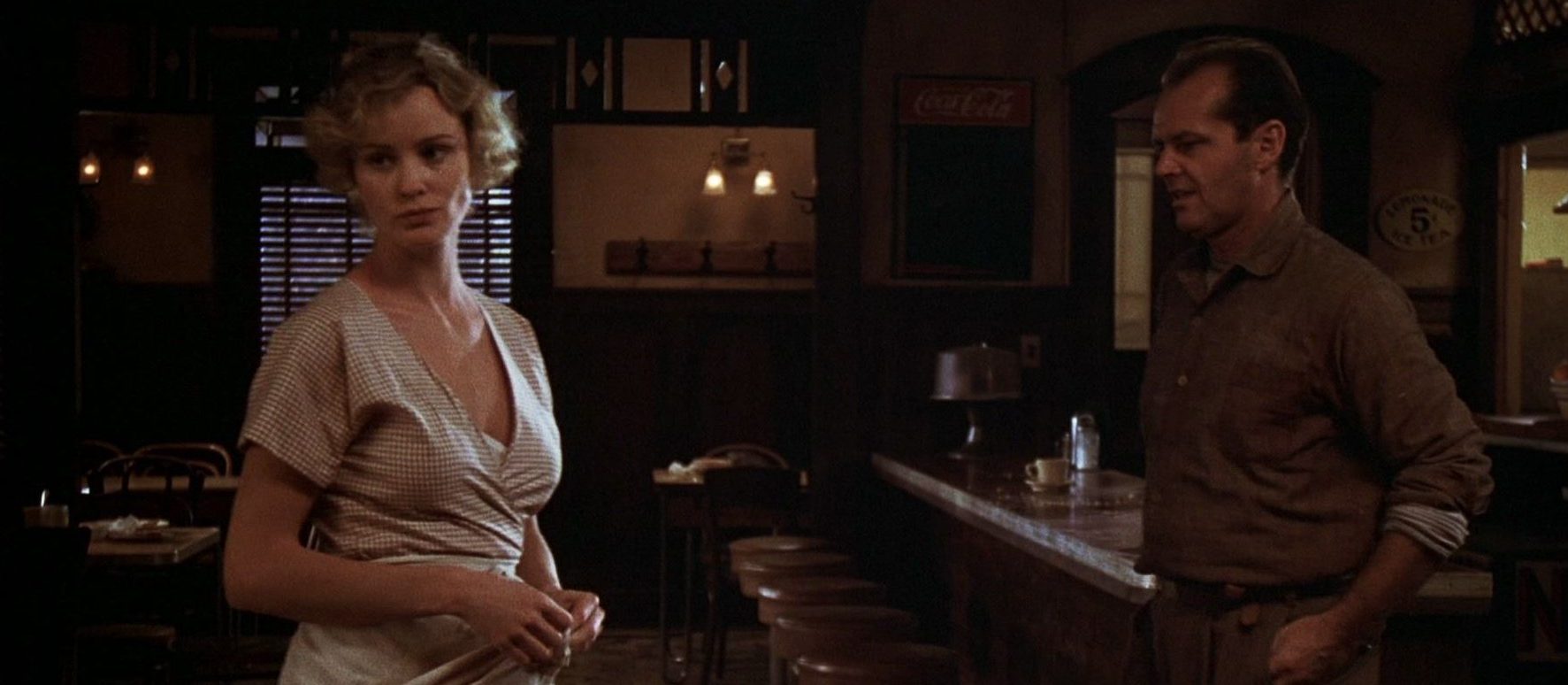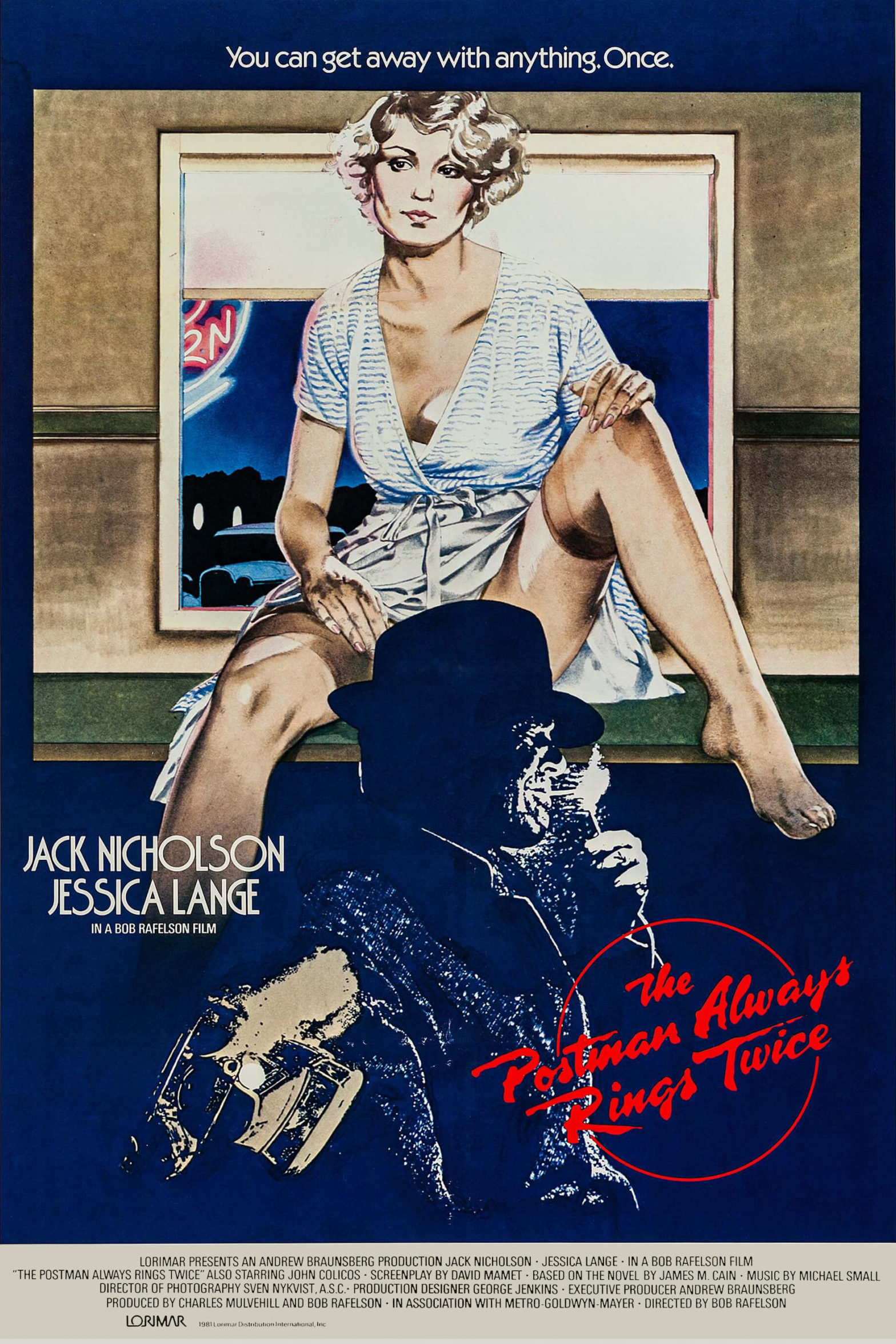

“I’m tired of what’s right and wrong.”
Set at a combo gas station/diner along a barren stretch of rural California highway during the Great Depression, Bob Rafelson’s The Postman Always Rings Twice depicts a wicked affair that develops between amoral drifter Frank Chambers (Jack Nicholson) and unhappy wife Cora Papadakis (Jessica Lange). Washing up at the backwater establishment by chance, Frank accepts an impromptu job offer from Nick Papadakis (John Colicos), the hardworking Greek immigrant who owns and operates the place. Though cheerful and industrious, Nick is seemingly romantically incompatible with Cora, who can’t fathom having the man’s children. She quickly falls into Frank’s welcoming arms, beginning a steamy dalliance marked by demeaning sexual encounters, that soon escalates into a scheme to murder Nick. They need two tries to make it happen, but no sooner has the deed been done than the law is onto them. A legal battle, blackmail, and betrayal ensue, with fate ultimately delivering the adulterers their comeuppance.
The film is primarily a triumph of atmosphere and tension. Amidst the dusty squalor of the roadside dive, unable to bootstrap themselves to a better situation, the subjects’ follow-through on their primal urges serves to underscore the sense that they feel trapped in life. They’re kindred spirits after a fashion, finding in one another something exciting, something novel, something that might provide a way out. This hope is a false one, as the film underscores in its final third, where, after the murder, their now-intertwined lives rapidly spiral out of control. In this last portion of the film, the intriguing dynamic drawn in the buildup is more or less abandoned, as heretofore unseen factors emerge and momentous events pile up in rapid sequence: a deal between insurance agents, a trip back home to visit a dying mother, unexplained treachery and subsequent forgiveness. Unfortunately, by ditching the agreeable slow burn of desperate hedonism for a convoluted resolution, the film’s potential impact is severely blunted.
Noted for the chemistry of its leads and its erotic sex scenes, this second Hollywood adaption of James M. Cain’s 1934 novel (Luchino Visconti’s Italian Ossessione should not be overlooked) also boasts a screenplay from David Mamet—his first, and obviously not as good as his later work—and photography from Bergman regular Sven Nykvist, as well as small parts for Michael Lerner, Christopher Lloyd, and Anjelica Huston, the latter of whom plays a European lion tamer who lures Frank into her circus wagon for a romp (I’m undecided on whether this is admirably audacious or just silly). Also, for those among us who are into worthless trivia, former UFC champion Chuck Liddell appears as a Boy Scout. For fans of Bob Rafelson and Jack Nicholson’s other collaborations (Five Easy Pieces, The King of Marvin Gardens), The Postman Always Rings Twice will strike enough of those same existential blue-collar dropout notes, but its underwritten characterizations do not match its considerable production value. Tay Garnett’s 1946 adaptation remains the better film.